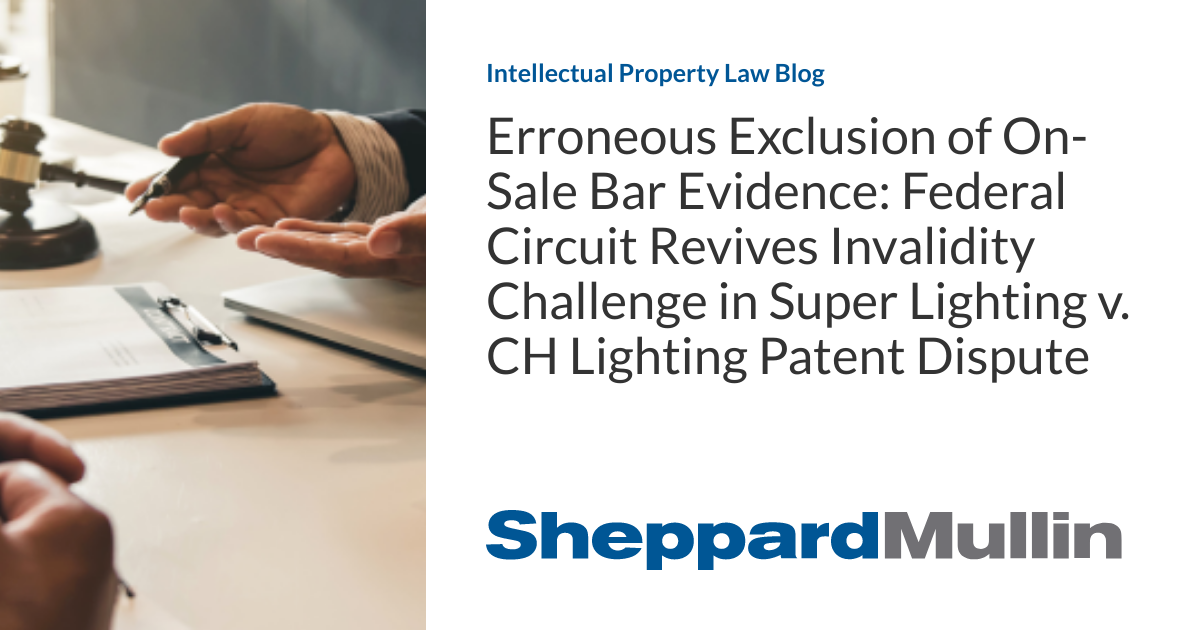
"Specifically, the Federal Circuit reversed the district court's grant of JMOL of invalidity in favor of the patent owner, Super Lighting, finding that the district court abused its discretion in excluding CH's relevant evidence pertaining to establishing the on-sale bar. As a result, the case was remanded for a new trial on validity of the patents."
"As part of its invalidity case, CH Lighting intended to assert an invalidity defense based on the AIA on-sale bar of § 102(a)(1). Specifically, CH Lighting intended to argue that the tube patents were invalid in view of three third-party LED tube lamp products-the "Cree tube," the "MaxLite" tube, and the "Philips tube.""
"Three of Super Lighting's asserted patents eventually went to trial-U.S. Patent Nos. 10,295,125 ("the '125 patent"), 10,352,540 ("the '540 patent"), and 9,939,140 ("the '140 patent"). All three patents generally relate to LED tube lamps. The '125 and '540 patents together were referred to as the "tube patents," as both relate to purported structural improvements in LED tube lamps."
Super Lighting sued CH Lighting in January 2020 for alleged infringement of three LED tube lamp patents. The asserted patents include U.S. Patent Nos. 10,295,125; 10,352,540; and 9,939,140, with the '125 and '540 patents referred to as the tube patents concerning structural improvements. CH asserted an AIA § 102(a)(1) on-sale bar defense based on third-party Cree, MaxLite, and Philips tube products. The district court excluded CH's evidence of prior sales and granted JMOL of invalidity for Super Lighting. The Federal Circuit found that exclusion an abuse of discretion, reversed that JMOL, and remanded for a new validity trial.
Read at Intellectual Property Law Blog
Unable to calculate read time
Collection
[
|
...
]